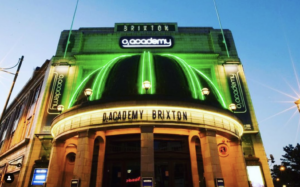With recent reports stating that 1 in 3 Nightclubs are at risk of closing in the coming months, the NTIA and AFEM are concerned that the UK faces losing the world-renowned club network, the breeding ground for the artists, DJs, and entrepreneurs which shape this amazing movement.
The pandemic has shown that the Government does not recognise the importance of the sector, and has limited knowledge of its value, particularly its value outside of simple economics, but Electronic Music and Club Culture in the UK also has community and cultural importance as this new report shows.
Dance music shapes our communities and our culture across the UK. Clubs and festivals improve the health, well-being, friendship and happiness of millions, year in year out. They are positive, unifying and inspiring forces in an increasingly divided world.
The creativity of the scene powers every corner of popular culture. Whether they’re gloomily-lit dark rooms or flamboyant, otherworldly fantasylands – clubs have become an increasingly fundamental part of modern social infrastructure.
Night Time Culture Economy accounts for 1.6% of GDP – or £36.4 billion – and 425,000 jobs across the UK.
These quantified benefits are often presented when urging the wider public to tolerate what some only perceive as noise-polluting local venues. However, nightlife’s contribution to the UK economy far exceeds the revenue it generates, and is significantly underestimated by the UK Government in its lack of consideration and direct support.
By focusing exclusively on their commercial value, the Government and key stakeholders overlook both the roles individual clubs play within their local communities and the broader socioeconomic context within which nightlife operates.
Electronic Music and clubs have been self-sufficient for the best part of 40 years, steering clear of conformity or politicization, the industry was purely about the music and creativity and galvanizing communities.
The report below quantifies the community and cultural importance of Electronic Music and Club Culture in the UK.
Michael Kill, CEO NTIA says:
“Dance music and clubs drive culture to the heart of communities – from the lone teenager listening to beats on a laptop in a bedroom, to groups of kids on an estate spitting lyrics and bars over an electro beat from the 1980s on a mobile phone, to the soul, jazz and funk instrumentals that underpin modern productions.”
“Electronic Dance music has inspired millions of people, and given them a hunger to dig deeper into music heritage to find new sounds, a new rhythm to listen to, create and produce. Reaching people from all walks of life, without prejudice or bias, crossing cultural boundaries and creating pathways for expression.”
“Aided by this report, wider society will grow to recognise electronic music and club culture as one of the most important economic and cultural movements of the future.”
Silvia Montello, CEO AFEM says:
“Those of us who live and breathe dance music have always known the incredible community value that club and rave culture has brought to our lives and our global audiences.”
“It is great to see the collection of academic evidence of these benefits outlined clearly in a report, which can contribute towards a broader understanding of the importance of our music and scene to millions of people, alongside the clearly defined commercial and economic benefits. “
“The need to dance, to express, to commune and to build friendships that know no barriers of race, class, gender or creed are fundamental.”
Yousef, DJ – Circus says:
“Dance music is the most significant cultural shift since the dawn of roll & roll. In the 1950s guitar heroes began blending black gospel, soul and juke joints, by the 1980s, DJs were blending disco with drum machines in warehouses, and both genres fought for their own expression beyond oppression.”
“In the subsequent decades, dance music has overtaken rock & roll as a popular form of youth culture, because it’s more spontaneous, more economical, more accessible and available to everyone, whether as a dancer or a producer, a DJ or a promoter. Nothing in musical history has ever been as easily accessible to so many people, making it one of the more important new global industries of the 20th century.”
Leigh Morgan, b:electronic says:
“The contribution of electronic music to communities and the wider cultural landscape globally should not be underestimated.”
“Powered by artists, DJs, labels, clubs, dancers, people of all ages and backgrounds, underpinned by shared values of togetherness, friendship and hope.”
“Electronic music broke social and economic barriers, imbued with a future-thinking spirit of innovation and it continues to do so.”
“This report, by collecting together peer-reviewed academic research, showcases this impact on society across many different areas.”
“The hope here is that the report will illuminate cultural and economic benefits for both governmental institutions and wider society to give this sector the respect and support it deserves.”




